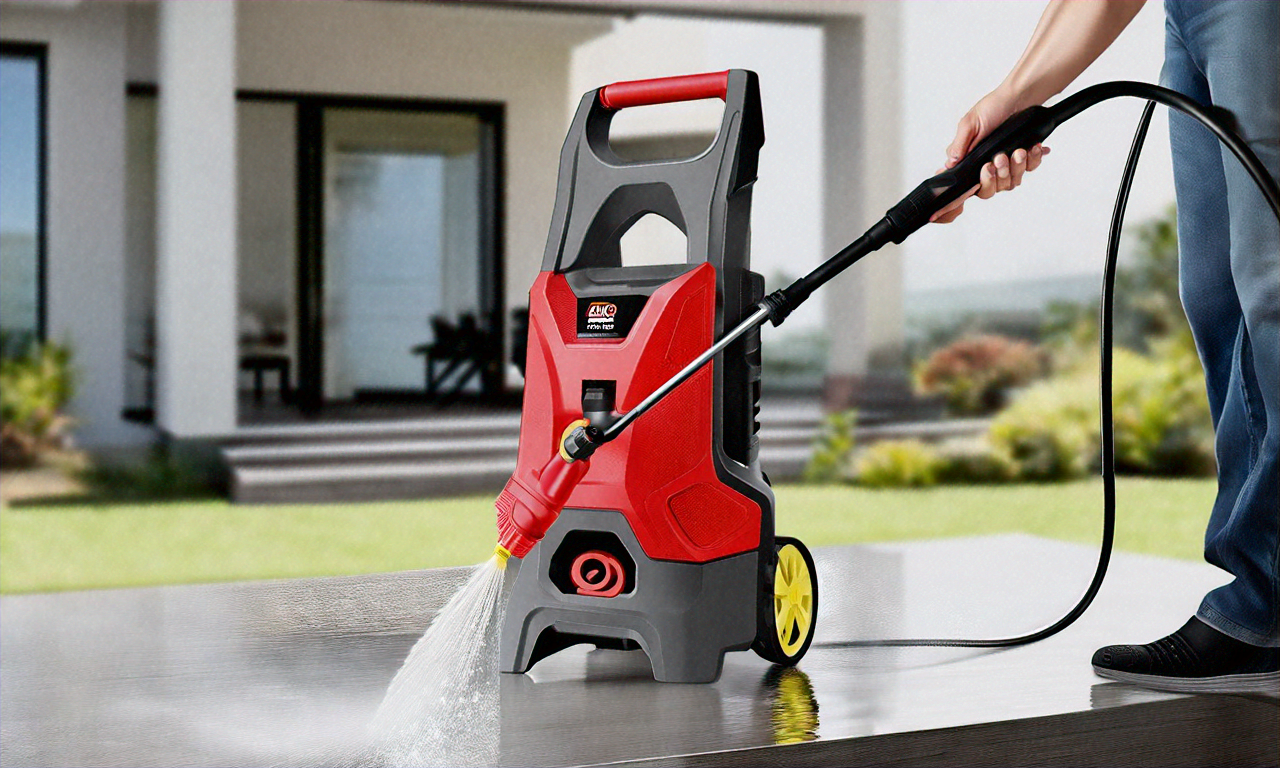Expert Guide to Choosing the Best High-Pressure Washers
High-pressure washers are powerful cleaning tools that use water jets to remove dirt, grime, and debris from various surfaces. These machines are essential for both residential and commercial cleaning tasks. This guide will help you understand the key factors to consider when selecting a high-pressure washer for your specific needs.

What are the main types of high-pressure washers?
High-pressure washers come in two primary categories: electric and gas-powered. Electric models are typically lighter, quieter, and suitable for smaller jobs around the home. They’re ideal for cleaning decks, patios, and vehicles. Gas-powered washers, on the other hand, offer greater mobility and higher pressure, making them better suited for larger areas and tougher cleaning tasks.
When choosing between electric and gas-powered washers, consider the scale of your cleaning projects and the availability of power sources. Electric models require a nearby outlet, while gas-powered units can be used anywhere, provided you have fuel.
How do pumps and pressure affect cleaning performance?
The heart of any high-pressure washer is its pump. Two main types of pumps are used in these machines: axial and triplex. Axial pumps are more common in consumer-grade models and are suitable for occasional use. Triplex pumps, found in professional-grade washers, are more durable and can handle frequent, heavy-duty use.
Pressure, measured in pounds per square inch (PSI), is a crucial factor in a washer’s cleaning power. Higher PSI ratings indicate greater cleaning force, but it’s important to match the pressure to your specific needs. For light residential use, a washer with 1,300-2,000 PSI is often sufficient. Commercial or heavy-duty applications may require 2,500-4,000 PSI or more.
What features do high pressure cleaning systems manufacturers offer?
High pressure cleaning systems manufacturers offer a range of features to enhance performance and user experience. Some common features include:
-
Adjustable nozzles: These allow you to switch between different spray patterns for various cleaning tasks.
-
Detergent tanks: Built-in tanks make it easy to apply soap or cleaning solutions.
-
Hose reels: These help manage and store the high-pressure hose neatly.
-
Thermal relief systems: These prevent pump damage by releasing hot water when the trigger is not engaged.
-
Quick-connect fittings: These allow for easy attachment and removal of accessories.
When evaluating manufacturers, consider the quality of these features and how they align with your specific cleaning needs. Reputable brands often provide better warranties and after-sales support, which can be crucial for long-term satisfaction.
How does power wash machine price compare across different models?
The price of power wash machines varies significantly based on their features, power, and intended use. Entry-level electric models for light residential use can start as low as $100, while professional-grade gas-powered washers can cost $1,000 or more.
Here’s a comparison of different power washer models across various price points:
| Model | Type | PSI | GPM | Price Range |
|---|---|---|---|---|
| Sun Joe SPX3000 | Electric | 2030 | 1.76 | $150 - $200 |
| Ryobi RY142300 | Electric | 2300 | 1.2 | $250 - $300 |
| Simpson MSH3125 | Gas | 3200 | 2.5 | $400 - $500 |
| Generac 7122 | Gas | 3200 | 2.7 | $600 - $700 |
| Simpson ALH4240 | Gas | 4200 | 4.0 | $900 - $1000 |
Prices, rates, or cost estimates mentioned in this article are based on the latest available information but may change over time. Independent research is advised before making financial decisions.
When considering the price, factor in the long-term costs such as maintenance, fuel (for gas models), and potential repairs. A higher initial investment in a more durable model may lead to cost savings over time, especially for frequent users.
What safety features should you look for in a high-pressure washer?
Safety is paramount when using high-pressure washers. Look for models that include the following safety features:
-
Ground Fault Circuit Interrupter (GFCI) protection for electric models
-
Thermal sensor to prevent overheating
-
Safety lock-off on the spray gun to prevent accidental activation
-
Pressure relief valve to protect against over-pressurization
-
Sturdy, non-slip wheels for stability during use
Additionally, always wear appropriate personal protective equipment, such as safety glasses and closed-toe shoes, when operating a high-pressure washer.
High-pressure washers are versatile tools that can significantly improve cleaning efficiency for various applications. By considering factors such as pump type, pressure ratings, manufacturer features, price, and safety, you can select a model that best suits your specific cleaning needs. Remember to always follow manufacturer guidelines and safety instructions to ensure optimal performance and longevity of your chosen high-pressure washer.




